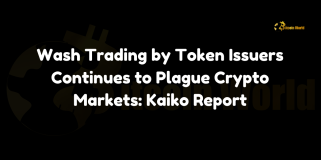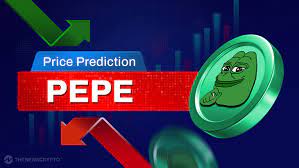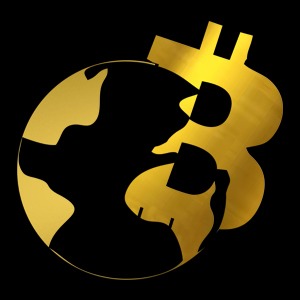Wash Trading by Token Issuers Continues to Plague Crypto Markets: Kaiko Report
代币发行人的清洗交易继续困扰加密货币市场:Kaiko 报告
发布: 2024/10/18 16:54 阅读: 687

Wash Trading in Cryptocurrency Markets: A Persistent Problem
加密货币市场的清洗交易:一个长期存在的问题
Wash trading, a practice that artificially inflates token prices and trading volumes, remains prevalent in cryptocurrency markets, according to a recent report by Kaiko. The report highlights its presence on both decentralized exchanges (DEXes) and centralized exchanges (CEXes), where token issuers manipulate liquidity pools to deceive unsuspecting investors. This activity distorts market data and undermines the integrity of crypto markets, posing risks to retail and institutional investors.
根据 Kaiko 最近的一份报告,清洗交易是一种人为抬高代币价格和交易量的做法,在加密货币市场中仍然很普遍。该报告强调了它在去中心化交易所(DEX)和中心化交易所(CEX)中的存在,代币发行者操纵流动性池来欺骗毫无戒心的投资者。这种活动扭曲了市场数据并破坏了加密货币市场的完整性,给散户和机构投资者带来风险。
Wash Trading on DEXes: A Growing Concern
去中心化交易所上的清洗交易:一个日益严重的担忧
Liquidity Pool Manipulation on Uniswap
Uniswap 流动性池操纵
Kaiko's report indicates that many of the over 200,000 assets on Ethereum-based DEXes lack intrinsic value and are often controlled by single entities. One common wash trading method involves creating ephemeral liquidity pools on platforms like Uniswap. Token issuers establish liquidity pools, injecting and withdrawing tokens to simulate high demand. They then engage in wash trading, buying and selling tokens among their own accounts, artificially inflating prices and volumes. This tactic attracts external investors who perceive a genuine demand for the token.
Kaiko 的报告表明,基于以太坊的 DEX 上超过 200,000 项资产中的许多资产缺乏内在价值,并且通常由单个实体控制。一种常见的清洗交易方法是在 Uniswap 等平台上创建临时流动性池。代币发行者建立流动性池,注入和提取代币来模拟高需求。然后,他们进行清洗交易,在自己的账户中买卖代币,人为抬高价格和交易量。这种策略吸引了认为对代币有真正需求的外部投资者。
Undermining Trust in Decentralized Markets
破坏去中心化市场的信任
The prevalence of wash trading on DEXes like Uniswap raises concerns about transparency and integrity. While DEXes are often perceived as more secure and transparent than CEXes due to their decentralized nature, inadequate oversight has enabled unscrupulous actors to exploit these platforms. Retail investors are particularly vulnerable, as wash trading creates false signals of demand and liquidity, leading them to invest in tokens with little to no inherent value.
Uniswap 等 DEX 上洗盘交易的盛行引发了人们对透明度和诚信度的担忧。尽管由于去中心化的性质,去中心化交易所通常被认为比中心化交易所更安全、更透明,但监管不足使得不道德的行为者能够利用这些平台。散户投资者尤其容易受到影响,因为清洗交易会产生虚假的需求和流动性信号,导致他们投资于几乎没有内在价值的代币。
Suspicious Activity on Centralized Exchanges (CEXes)
中心化交易所 (CEX) 上的可疑活动
High Volume-to-Liquidity Ratios on CEXes
CEX 的高成交量与流动性比率
Wash trading is not confined to DEXes. Kaiko's report identifies suspicious activities on CEXes like HTX and Poloniex. These platforms exhibit a high number of assets with volume-to-liquidity ratios exceeding 100 times, a red flag for market manipulation. By artificially inflating trading volume, bad actors create an illusion of liquidity and drive up prices.
清洗交易不仅限于去中心化交易所。 Kaiko 的报告发现了 HTX 和 Poloniex 等 CEX 上的可疑活动。这些平台拥有大量资产,交易量与流动性比率超过100倍,这是市场操纵的危险信号。不良行为者通过人为夸大交易量,制造流动性假象并推高价格。
Unusual Trading Patterns for PEPE Token on HTX
HTX 上 PEPE 代币的异常交易模式
One notable example is the PEPE token on HTX. In July 2024, trading volumes for PEPE surged on HTX, contrary to trends on other exchanges. This anomaly suggests wash trading or market manipulation, as the volume spike was unsupported by broader interest. Such discrepancies undermine the reliability of trading volume data on some CEXes and emphasize the need for enhanced transparency and investor protection.
一个值得注意的例子是 HTX 上的 PEPE 代币。 2024 年 7 月,HTX 上的 PEPE 交易量激增,与其他交易所的趋势相反。这种异常现象表明洗盘交易或市场操纵,因为成交量的飙升并没有得到更广泛兴趣的支持。这种差异损害了一些中央交易所交易量数据的可靠性,并强调了提高透明度和投资者保护的必要性。
Impact of Wash Trading on Crypto Markets
清洗交易对加密货币市场的影响
Distorting Market Data
扭曲市场数据
Wash trading distorts market data, making it difficult for investors to accurately gauge token demand and value. By artificially inflating volumes and prices, it creates the illusion of liquidity and interest, leading to misinformed decisions.
清洗交易扭曲了市场数据,使投资者难以准确衡量代币需求和价值。通过人为夸大交易量和价格,它造成了流动性和利息的错觉,从而导致错误的决策。
Undermining Investor Confidence
削弱投资者信心
Wash trading also erodes investor confidence in the broader cryptocurrency market. Investors rely on accurate market data for decision-making, and the prevalence of wash trading undermines the integrity of exchange-provided data. For DEXes, where transparency is touted as a core advantage, wash trading raises questions about the effectiveness of current detection and prevention mechanisms.
清洗交易也削弱了投资者对更广泛的加密货币市场的信心。投资者依赖准确的市场数据进行决策,而刷量交易的盛行破坏了交易所提供的数据的完整性。对于以透明度为核心优势的去中心化交易所而言,虚假交易引发了人们对当前检测和预防机制有效性的质疑。
Addressing the Issue: Regulatory and Industry Response
解决问题:监管和行业反应
Regulatory Oversight
监管监督
Combating wash trading requires regulatory oversight. Centralized exchanges face varying levels of regulation, but DEXes often operate with minimal supervision, making them susceptible to manipulation. Regulators are taking steps to address wash trading, but the decentralized and global nature of the crypto market poses enforcement challenges. Coordinated efforts between regulators and industry players are essential for developing effective solutions.
打击清洗交易需要监管监督。中心化交易所面临不同程度的监管,但去中心化交易所通常在监管最少的情况下运营,这使得它们很容易受到操纵。监管机构正在采取措施解决清洗交易问题,但加密货币市场的去中心化和全球性给执法带来了挑战。监管机构和行业参与者之间的协调努力对于制定有效的解决方案至关重要。
Technological Solutions
技术解决方案
The industry is exploring technological solutions to combat wash trading. Blockchain analytics firms like Kaiko identify suspicious activity and provide data to exchanges and regulators for detection and prevention. Exchanges can implement automated monitoring systems to flag unusual trading patterns and take action against manipulative accounts.
该行业正在探索打击虚假交易的技术解决方案。 Kaiko 等区块链分析公司识别可疑活动,并向交易所和监管机构提供数据以进行检测和预防。交易所可以实施自动监控系统来标记异常交易模式并对操纵账户采取行动。
Conclusion
结论
Wash trading remains a significant problem in cryptocurrency markets, with token issuers on DEXes and CEXes manipulating liquidity pools to artificially inflate prices. This distorts market data, undermines investor confidence, and poses risks to both retail and institutional investors. Addressing wash trading requires a combination of regulatory oversight, technological innovation, and industry collaboration. By enhancing transparency and accountability, the crypto industry can create a more trustworthy and reliable market for all participants.
清洗交易仍然是加密货币市场的一个重大问题,DEX 和 CEX 上的代币发行人操纵流动性池人为抬高价格。这扭曲了市场数据,削弱了投资者的信心,并给散户和机构投资者带来了风险。解决清洗交易需要将监管监督、技术创新和行业合作结合起来。通过提高透明度和问责制,加密行业可以为所有参与者创造一个更值得信赖和可靠的市场。
近期新闻
更多>- 同性恋 Pepe Solana Memecoin 在交易所上市前上涨 18,000%,而 SHIB、BONK 和 DOGE 崩盘 01-01
- BTFD 预售吸引了最佳新 Meme 代币预售的投资者,PEPE 和 SPX6900 主导了市场,带来了可观的回报... 01-01
- 同性恋 Pepe (HOMOPEPE) Solana Memecoin 在交易所上市前上涨 18,000%,而 SHIB、BONK 和 DOGE 崩盘 01-01
- 指标表明 WIF、JASMY 和 PEPE 在 2025 年具有巨大潜力 01-01
- 在 Pepe 和 Moo Deng 的加密炒作中,BTFD 币的预售不容错过:本周将加入最佳 Meme 币预售 01-01
- 同性恋 Pepe (HOMOPEPE) Solana Memecoin 在交易所上市前上涨 18,000%,而 SHIB、BONK 和 DOGE 崩盘 01-01
- 下一季度的加密宝石:最值得关注的 5 个代币 01-01
- 为什么 $PEPE 今天上涨 20%,下一个可能是哪种代币 01-01
- 短期最佳新 Meme 代币:BTFD 在预售中筹集了 470 万美元,BONK 拥有低成本交易,PEPE 拥有稳定的追随者... 01-01
精选专题
更多>>-

- pepecoin 价格分析
- 本主题提供与 PepeCoin 价格相关的文章,涵盖 PepeCoin 的关键见解和分析
-

- 佩佩:模因明星
- 本主题提供与最有前途的模因 PEPECOIN 相关的文章,该项目有潜力成为主流数字货币。具有去中心化、可靠、易用、速度快、成本低、可扩展等优点,预计未来会得到更广泛的应用
-

- Pepecoin 价格预测
- 我们收集了有关 pepecoin 成功故事的事实,并提供了 pepecoin 价格预测
精选文章
更多>>- 1 Avalanche 和 Aptos 竞争对手在两周内筹集了超过 60 万美元
- 2 今日加密货币价格:随着 BTC、Pepe Coin、SEI 的上涨,市场继续上涨
- 3 主要加密货币分析师托尼看好这些模因币,但其中有一个脱颖而出
- 4 MTAUR 准备好粉碎 DOGE 和 PEPE:即将到来 100 倍的价格增长吗?
- 5 Memecoins 在 2024 年激增,Popcat 年初至今涨幅达 7,621%,领先于顶级加密代币
- 6 PEPE Meme 币重创 ATH——看看去年投资 83 美元的 Pepe 币现在值多少钱
- 7 错过了《被解放的佩佩》吗?别担心,这款新的 Pepe 主题 Meme 代币将在 2025 年带来更大收益
- 8 前 4 名山寨币 70% 折扣 – 最后机会!
- 9 聪明的 $Pepe 交易员在市场下跌期间获利 1170 万美元
- 10 狗狗币创造者向 NBA 传奇人物斯科蒂·皮蓬提议 DOGE

